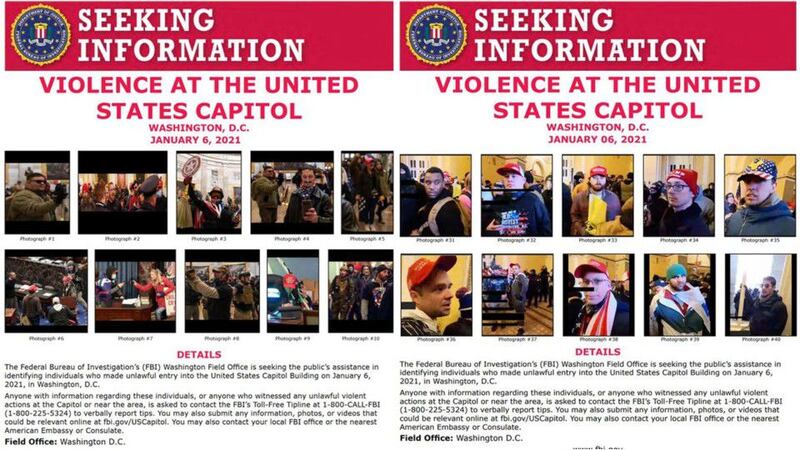What started out as a rally near the White House Wednesday quickly devolved into an assault on the U.S. Capitol and some say Democracy itself.
What the world witnessed was violence against the nation’s center of government, but did it also witness an attempt to overthrow the U.S. government?
In other words, did we watch a coup in progress?
What does the word “coup” mean, and what constitutes one? Here’s what we know about the term.
What is a coup?
“We define a coup d’état (a French term for overthrowing the government) as the sudden and irregular (i.e., illegal or extralegal) removal, or displacement, of the executive authority of an independent government,” the Coup D’etat Project at the University of Illinois’ Cline Center for Democracy wrote in 2013.
The group has identified 12 types of coups — including everything from overthrowing a despot ruler (a “palace coup”) to a coup that is led by a country’s military.
While Wednesday’s actions don’t fit neatly into one of the 12 categories, the center’s work suggests that what happened may be considered an “attempted coup” or a “coup conspiracy.”
According to professors Jonathan Powell and Clayton Thyne, what happened on Wednesday in Washington doesn’t meet the definition of a coup.
Powell and Thyne say a coup is “an overt attempt by the military or other elites within the state apparatus to unseat the sitting head of state using unconstitutional means,” according to a story from The Conversation.
The professors apply three tests to determine what constitutes a coup:
- Are the perpetrators agents of the state, such as military officials or rogue governmental officials?
- Is the target of the insurrection the chief executive of the government?
- Do the plotters use illegal and unconstitutional methods to seize executive power?
So, was what happened a coup?
What happened Wednesday could be called a coup under the definition of the Cline Center for Democracy, but not under the professors’ definition.
Then, what would it be called?
Powell and Thyne would classify the actions that took place Wednesday as “election violence,” similar to what is seen in some foreign countries in violent overthrows of governments.
What is the difference?
The difference between what happened in Washington and a coup, according to Powell and Thyne, is that the protesters do not appear to have been “agents of the state, such as military officials or rogue governmental officials.” Instead, it appears those involved were “civilians,” or people not directly affiliated with the government or active-duty military branches.
Can you make a case for it being a coup?
Some are saying the actions on Wednesday constitute a coup because protesters breached the Capitol as lawmakers were carrying out their constitutional duty to count Electoral College votes and choose the next president.
Trump has used the term, too
Trump has his own history with the term and the way he has used it, some say, could have been a spark for the violence that happened Wednesday.
According to a story from Politifact, Trump’s use of the word “coup” to describe impeachment and election fraud intensified “the rhetorical battle.”
Steven Smith, a political scientist at Washington University in St. Louis, told Politifact in 2019 that “what is unusual with Trump’s use of the term ‘coup’ is that it is the president who is using the term.”
“President Trump is taking the lead in intensifying the rhetorical battle, which is bound to make the divide between his supporters and other Americans even deeper than it would be if legislators and pundits were using the term,” Smith said.
Such an approach, Smith added, “will justify more radical strategies in the future.”
Cox Media Group








